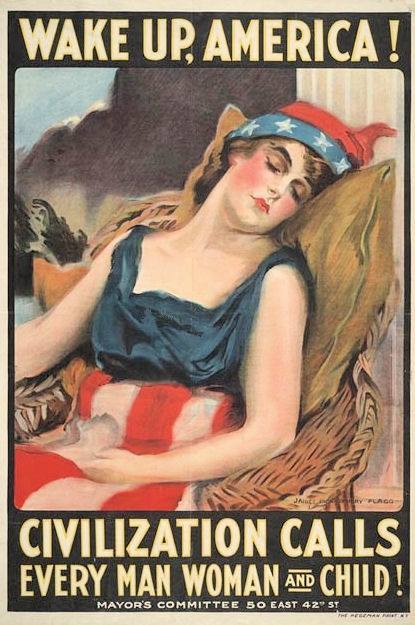Blog
https://www.youtube.com/watch?v=roqf8f0d-PQ
more...Messier 74 (also known as NGC 628 and Phantom Galaxy) is a large spiral galaxy in the equatorialconstellation Pisces. It is about 32 million light-years away from Earth. The galaxy contains two clearly defined spiral arms and is therefore used as an archetypal example of a grand design spiral galaxy. The galaxy’s low surface brightness makes it the most difficult Messier object for amateur astronomers to observe. Its relatively large angular (that is, apparent) size and the galaxy’s face-on orientation make it an ideal object for professional astronomers who want to study spiral armstructure and spiral density waves. It is estimated that M74 hosts about 100 billion stars
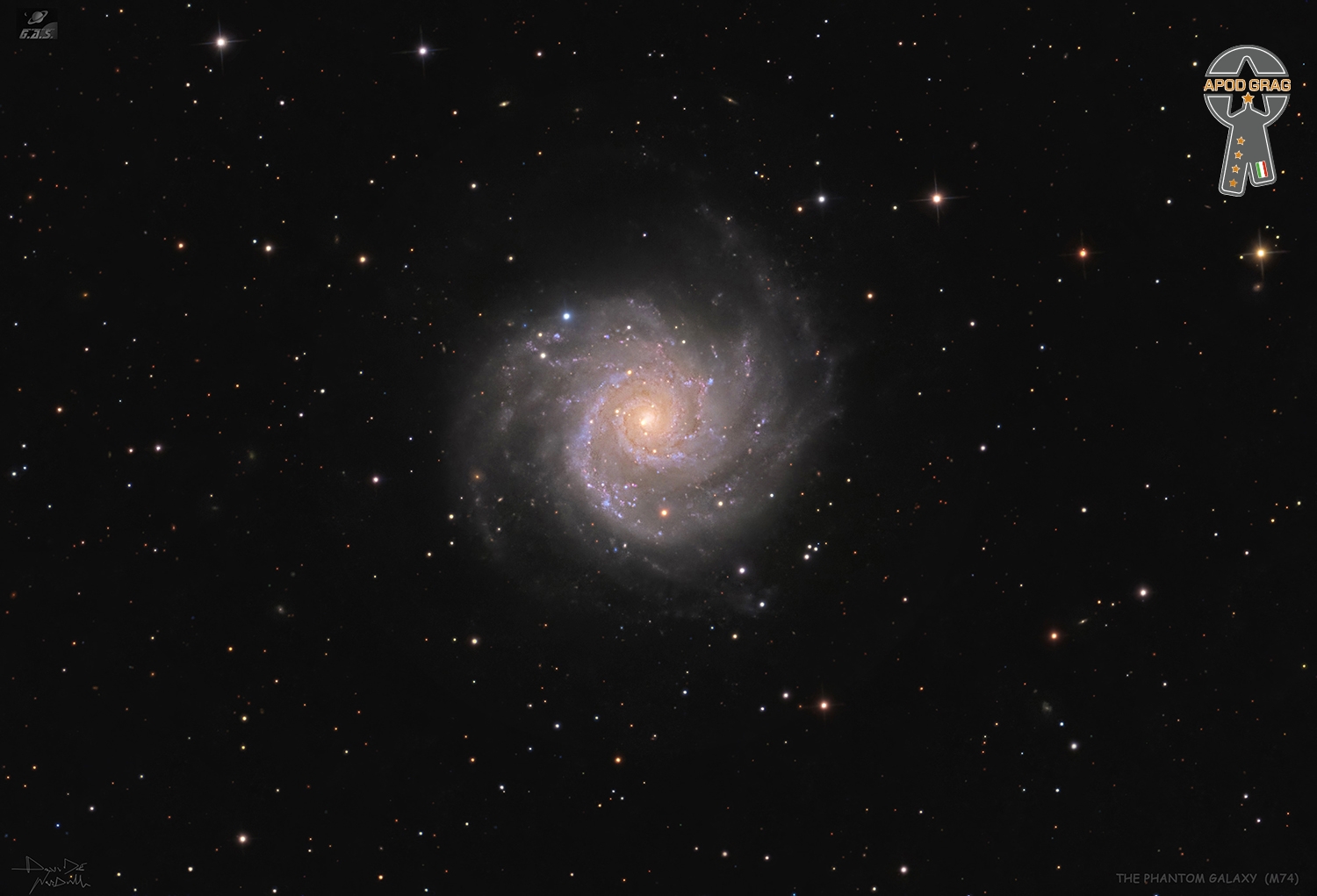
Roberta Joan “Joni” Mitchell CC (née Anderson; born November 7, 1943) is a Canadian-American singer-songwriter, multi-instrumentalist and painter. As one of the most influential singer-songwriters to emerge from the 1960s folk music circuit, Mitchell became known for her starkly personal lyrics and unconventional compositions which grew to incorporate pop and jazz elements.She has received many accolades, including ten Grammy Awards and induction into the Rock and Roll Hall of Fame in 1997. Rolling Stonecalled her “one of the greatest songwriters ever”, and AllMusic has stated, “When the dust settles, Joni Mitchell may stand as the most important and influential female recording artist of the late 20th century”.
Mitchell began singing in small nightclubs in Saskatoon and throughout western Canada, before moving on to the nightclubs of Toronto. She moved to the United States and began touring in 1965. Some of her original songs (“Urge for Going”, “Chelsea Morning“, “Both Sides, Now“, “The Circle Game“) were recorded by other folk singers, allowing her to sign with Reprise Records and record her debut album, Song to a Seagull, in 1968. Settling in Southern California, Mitchell helped define an era and a generation with popular songs like “Big Yellow Taxi” and “Woodstock“. Her 1971 album Blue is often cited as one of the best albums of all time; it was rated the 30th best album ever made in Rolling Stone‘s 2003 list of the “500 Greatest Albums of All Time“, rising to number 3 in the 2020 edition. In 2000, The New York Times chose Blue as one of the 25 albums that represented “turning points and pinnacles in 20th-century popular music”. NPR ranked Bluenumber 1 on a 2017 list of Greatest Albums Made By Women.
Mitchell began exploring more jazz-influenced ideas on 1974’s Court and Spark, which featured the radio hits “Help Me” and “Free Man in Paris“ and became her best-selling album. Mitchell’s vocal range began to shift from mezzo-soprano to that of a wide-ranging contralto around 1975. Her distinctive piano and open-tuned guitar compositions also grew more harmonically and rhythmically complex as she melded jazz with rock and roll, R&B, classical music and non-Western beats. Starting in the mid-1970s, she began working with noted jazz musicians including Jaco Pastorius, Tom Scott, Wayne Shorter, Herbie Hancock, and Pat Metheny as well as Charles Mingus, who asked her to collaborate on his final recordings. She later turned to pop and electronic music and engaged in political protest. She was awarded a Lifetime Achievement Award at the 44th Annual Grammy Awards in 2002.
Mitchell produced or co-produced most of her albums and designed most of her own album covers, describing herself as a “painter derailed by circumstance”. A critic of the music industry, she quit touring and released her 17th and last album of original songs in 2007. She would give occasional interviews and make appearances to speak on various causes over the next two decades, though the rupture of a brain aneurysm in 2015 led to a long period of recovery and therapy. A series of retrospective compilations were released over the time period, culminating in the Joni Mitchell Archives, a project to publish much of Joni’s unreleased material from her long career. She returned to public appearances in 2021, accepting several awards in person, including a Kennedy Center Honor in 2021. She performed live for the first time in 9 years, with an unannounced appearance at the June 2022 Newport Folk Festival, and performed a headlining show in June 2023 at the Gorge Amphitheatre in Washington State.
more...David Spencer Ware (November 7, 1949 – October 18, 2012) was an American jazz saxophonist, composer, and bandleader.
Ware was born in Plainfield, New Jersey, and grew up in Scotch Plains, New Jersey. While in high school he attended music camp at the University of Connecticut taught by Ron Carter, Charlie Mariano, and Alan Dawson and played in his school’s bands as well as in the New Jersey All-State band. He graduated from Scotch Plains-Fanwood High School and briefly attended the Berklee College of Music in 1967–68.
more...Howard Rumsey (November 7, 1917 – July 15, 2015) was an American jazz double-bassist known for his leadership of the Lighthouse All-Stars in the 1950s.
Born in Brawley, California, United States, Rumsey first began playing the piano, followed by the drums and finally the bass. After jobs with Vido Musso and Johnnie Davis, Rumsey became part of Stan Kenton‘s first band. Rumsey soon left Kenton after an argument. He played with Charlie Barnet and Barney Bigardbefore taking a short hiatus from music. Following this absence, Rumsey returned to the Los Angeles jazz scene to form the group the Lighthouse All-Stars. For most of the 1950s this group played each Sunday at the Lighthouse Cafe in Hermosa Beach. During its lifetime, the Lighthouse All-Stars were one of the primary modern jazz institutions on the west coast, providing a home for many Los Angeles musicians.
https://www.youtube.com/watch?v=szVy4IqpqpI&list=PL0q2VleZJVEm42NnXFUgIg6pfqCpEnt22
more...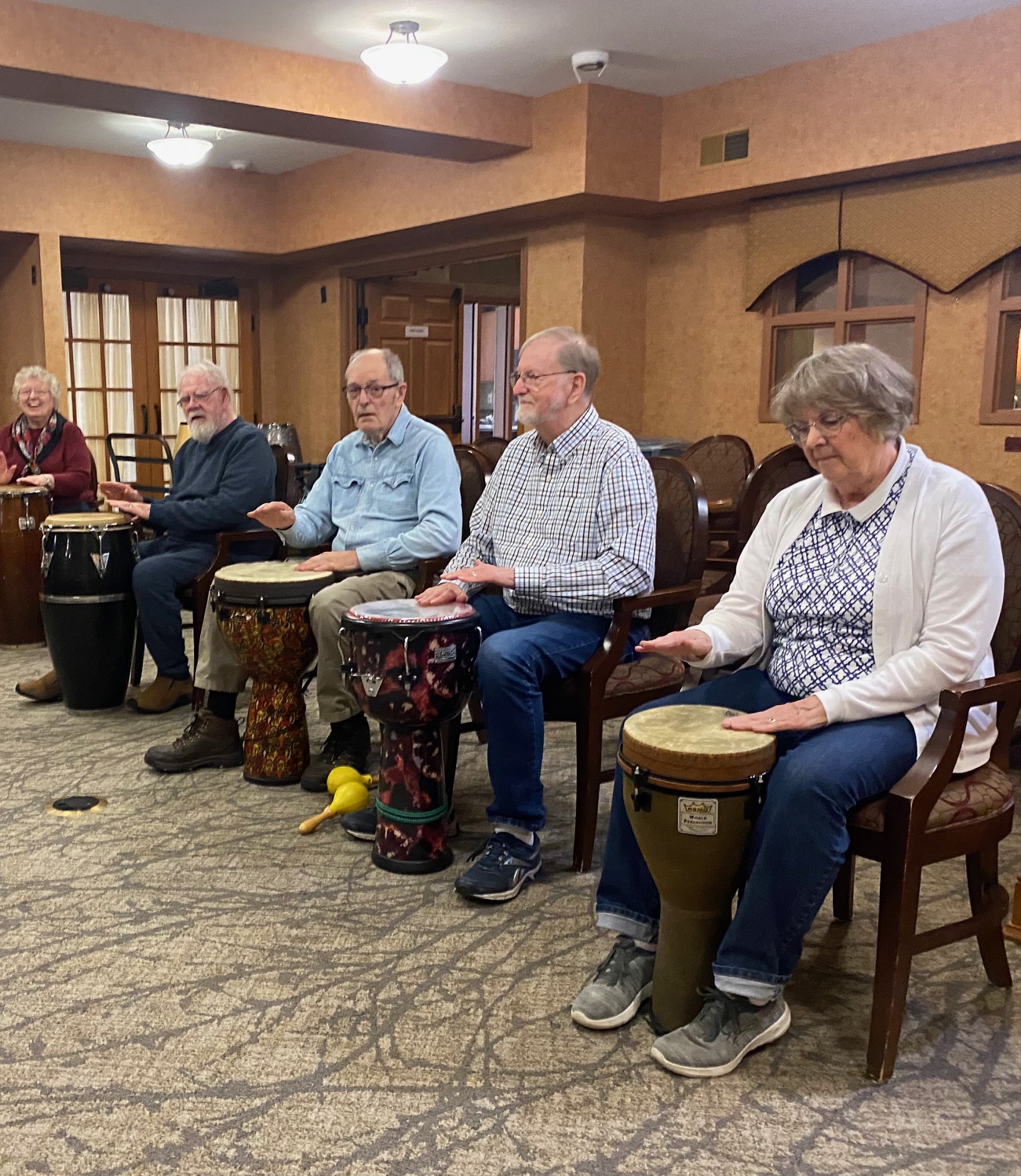

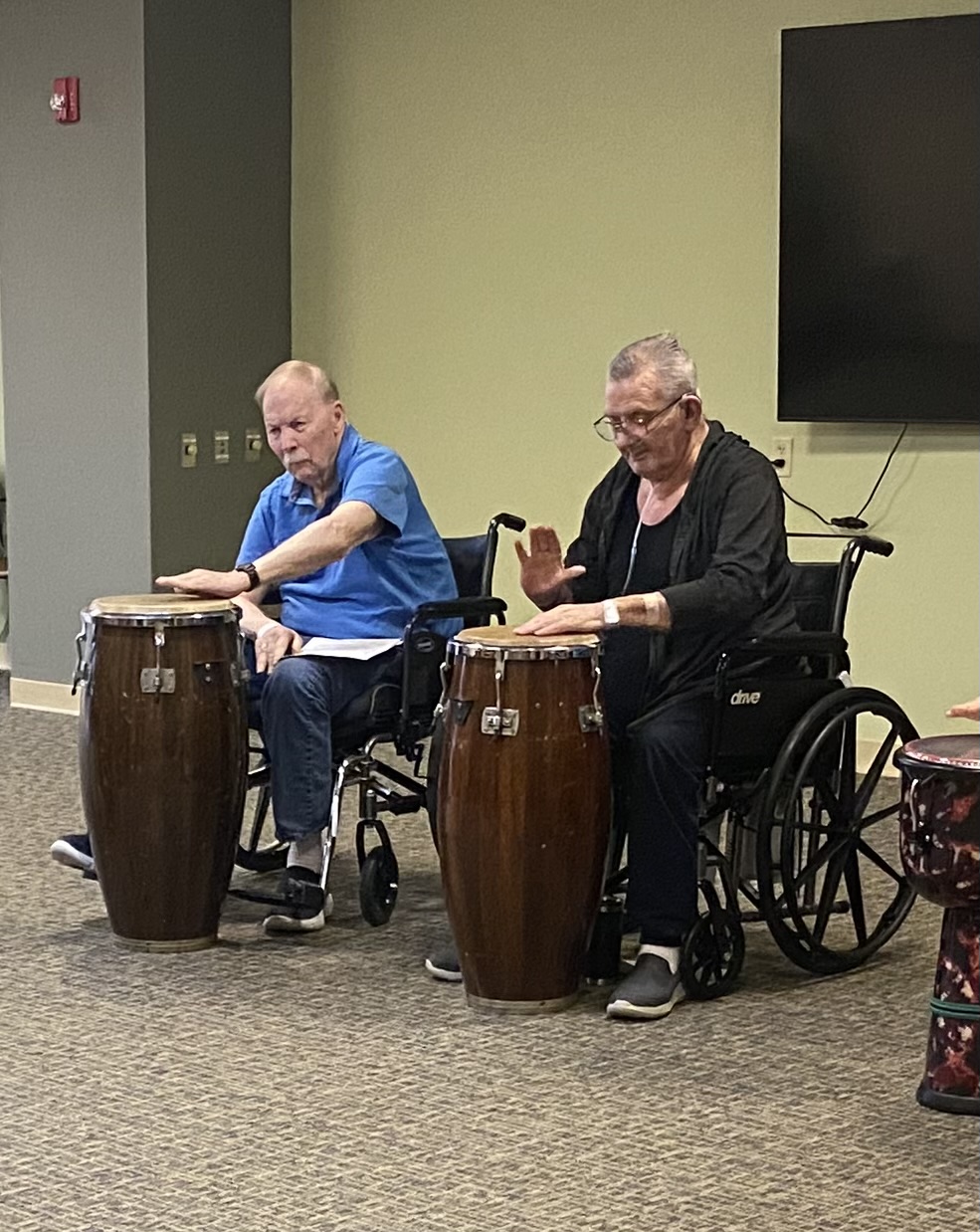
This image features the spiral galaxy NGC 941, which lies about 55 million light-years from Earth. The data used for this image were collected by Hubble’s Advanced Camera for Surveys (ACS). The beautiful NGC 941 is undoubtedly the main attraction in this image; however, this hazy-looking galaxy was not the motivation for the data being collected. That distinction belongs to an astronomical event that took place in the galaxy years before: the supernova SN 2005ad. The location of this faded supernova was observed as part of a study of multiple hydrogen-rich supernovae, also known as type II supernovae, in order to better understand the environments in which certain types of supernovae take place. Whilst the study was conducted by professional astronomers, SN 2005ad itself owes its discovery to a distinguished amateur astronomer named Kōichi Itagaki, who has discovered over 170 supernovae.
This might raise the question of how an amateur astronomer could spot something like a supernova event before professional astronomers — who have access to telescopes such as Hubble. The answer is in part that the detection of supernovae is a mixture of skill, facilities and luck. Most astronomical events happen over time spans that dwarf human lifetimes, but supernova explosions are extraordinarily fast, appearing very suddenly and then brightening and dimming over a period of days or weeks. Another aspect is that professional astronomers often do not spend that much time actually observing. There is a great deal of competition for time on telescopes such as Hubble, and then data from a few hours of observations might take weeks, months, or sometimes even years to process and analyse to their full potential. Amateur astronomers can spend much more time actually observing the skies, and sometimes have extremely impressive systems of telescopes, computers and software that they can put to use.
So many supernovae are spotted by skilful amateurs such as Itagaki that there is actually an online system set up for reporting them (the Transient Name Server). This is a big help to professional astronomers, because with supernova events time is truly of the essence. After the discovery of SN 2005ab was reported, professional astronomers were able to follow up with spectroscopic studies and confirm it as a type II supernova, which eventually led to its location being included in this study with Hubble. Such a study wouldn’t be possible without a rich library of previous supernovae, built with the keen eyes of amateur astronomers.
[Image Description: A spiral galaxy, seen face-on from Earth. The spiral arms of the galaxy are bright but not well defined, merging into a swirling disc with a faint halo of dimmer gas around it. The core glows brightly in a lighter colour and has a bit of faint dust crossing it. Two redder, visually smaller galaxies and a bright star are prominent around the galaxy, with more tiny objects in the background.]
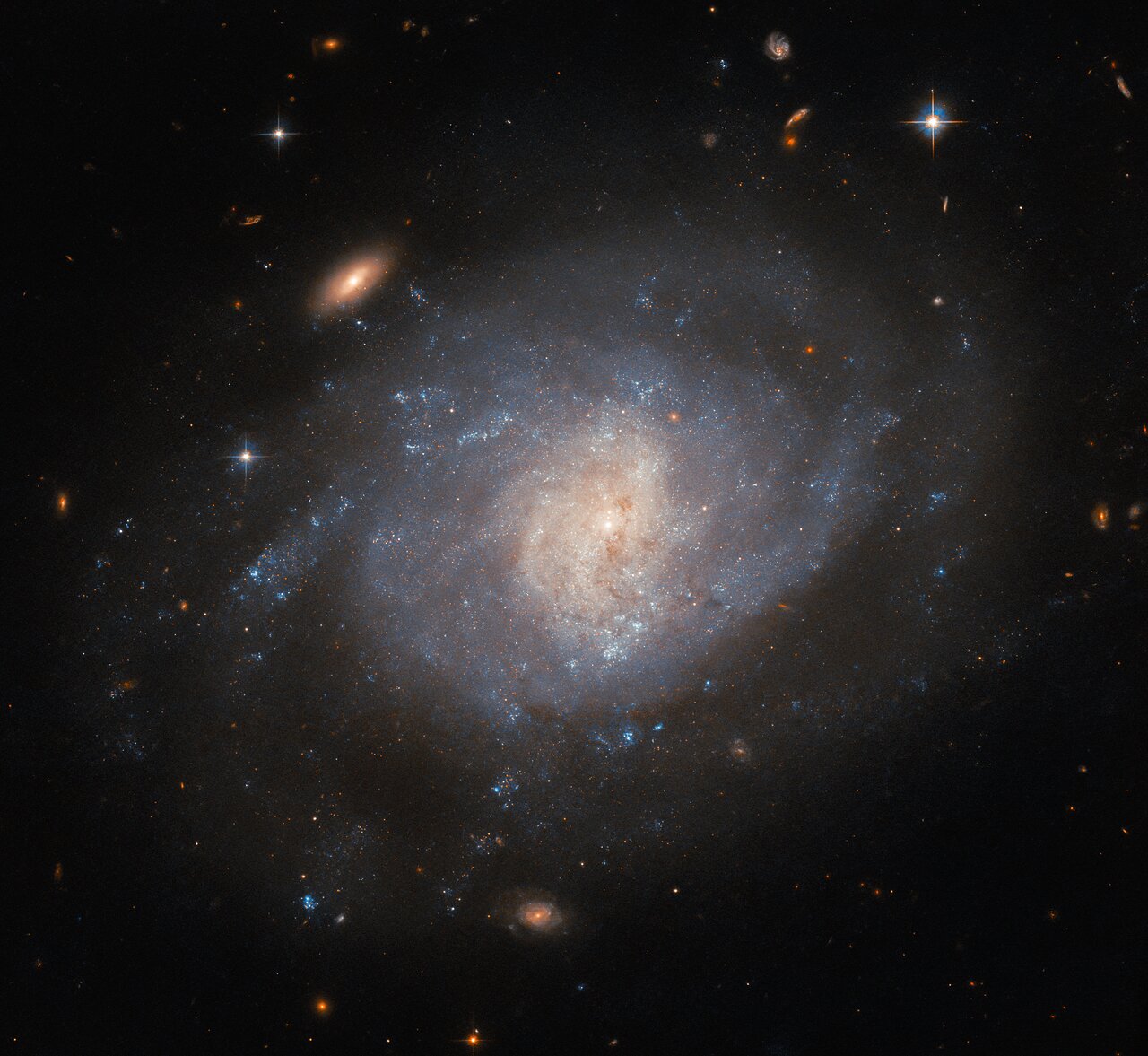
more...
Arturo Sandoval is a Cuban-American jazz trumpeter, pianist, timbalero, and composer. While living in his native Cuba, Sandoval was influenced by jazz musicians Charlie Parker, Clifford Brown, and Dizzy Gillespie. In 1977 he met Gillespie, who became his friend and mentor and helped him defect from Cuba while on tour with the United Nations Orchestra. Sandoval became an American naturalized citizen in 1998. His life was the subject of the film For Love or Country: The Arturo Sandoval Story (2000) starring Andy García.
Sandoval has won 4 Grammy Awards, Billboard Awards and one Emmy Award. He performed at the White House and at the Super Bowl (1995).
more...Joseph Raymond Conniff (November 6, 1916 – October 12, 2002) was an American bandleader and arranger best known for his Ray Conniff Singers during the 1960s.
Conniff was born November 6, 1916, in Attleboro, Massachusetts, United States, and learned to play the trombone from his father. He studied music arranging from a course book.
After serving in the U.S. Army in World War II (where he worked under Walter Schumann), he joined the Artie Shaw big band and wrote many arrangements for him. After his stint with Shaw, he was hired in 1954 by Mitch Miller, head of A&R at Columbia Records, as the label’s home arranger, working with several artists including Rosemary Clooney, Marty Robbins, Frankie Laine, Johnny Mathis, Guy Mitchell and Johnnie Ray. He wrote a top-10 arrangement for Don Cherry‘s “Band of Gold” in 1955, a single that sold more than a million copies. Among the hit singles Conniff backed with his orchestra (and eventually with a male chorus) were “Yes Tonight Josephine” and “Just Walkin’ in the Rain” by Johnnie Ray; “Chances Are” and “It’s Not for Me to Say” by Johnny Mathis; “A White Sport Coat” and “The Hanging Tree” by Marty Robbins; “Moonlight Gambler” by Frankie Laine; “Up Above My Head“, a duet by Frankie Laine and Johnnie Ray; and “Pet Me, Poppa” by Rosemary Clooney. He also backed up the albums Tony by Tony Bennett, Blue Swing by Eileen Rodgers, Swingin’ for Two by Don Cherry, and half the tracks of The Big Beat by Johnnie Ray. In these early years Conniff produced similar-sounding records for Columbia’s Epic label under the name of Jay Raye(which stood for “Joseph Raymond”), among them a backing album and singles with the American male vocal group Somethin’ Smith and the Redheads.
more...John Philip Sousa Portuguese: [ˈso(w)zɐ]; November 6, 1854 – March 6, 1932) was an American composer and conductor of the late Romantic era known primarily for American military marches. He is known as “The March King” or the “American March King”, to distinguish him from his British counterpart Kenneth J. Alford. Among Sousa’s best-known marches are “The Stars and Stripes Forever” (National March of the United States of America), “Semper Fidelis” (official march of the United States Marine Corps), “The Liberty Bell“, “The Thunderer“, and “The Washington Post“.
Sousa began his career playing violin and studying music theory and composition under John Esputa and George Felix Benkert. Sousa’s father enlisted him in the United States Marine Band as an apprentice in 1868. He left the band in 1875, and over the next five years, Sousa performed as a violinist and learned to conduct. In 1880, he rejoined the Marine Band and served there for 12 years as director, after which Sousa was hired to conduct a band organized by David Blakely, P.S. Gilmore‘s former agent. Blakely wanted to compete with Gilmore. From 1880 until his death, Sousa focused exclusively on conducting and writing music. He aided in the development of the sousaphone, a large brass instrument similar to the helicon and tuba.
Upon the outbreak of World War I, Sousa was awarded a wartime commission of lieutenant commander to lead the Naval Reserve Band in Illinois. He then returned to conduct the Sousa Band until his death in 1932. In the 1920s, Sousa was promoted to the permanent rank of lieutenant commander in the naval reserve.
more...It was Halloween and the sky looked like a creature. Exactly which creature, the astrophotographer was unsure (but possibly you can suggest one). Exactly what caused this eerie apparition in 2013 was sure: one of the best auroral displays that year. This spectacular aurora had an unusually high degree of detail. Pictured here, the vivid green and purple auroral colors are caused by high atmospheric oxygen and nitrogen reacting to a burst of incomingelectrons. Birch trees in Tromsø, Norway formed an also eerie foreground. Frequently, new photogenic auroras accompany new geomagnetic storms.
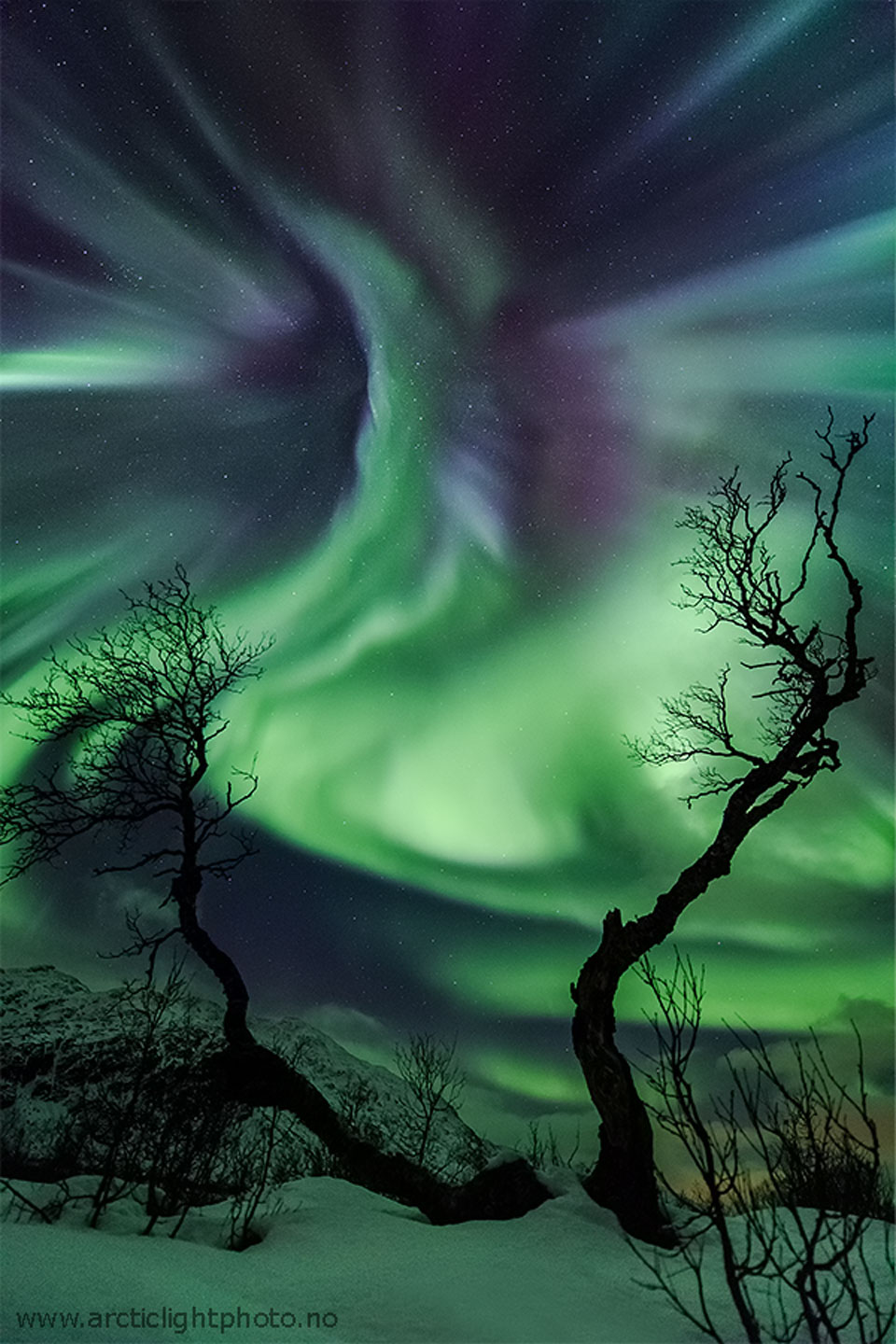
Neil Cowley (born 5 November 1972) is an English contemporary pianist and composer. He has also released music as part of Fragile State, the Green Nuns of the Revolution, and the Neil Cowley Trio. With his trio, he appeared on Later… with Jools Holland in April 2008 and won the 2007 BBC Jazz Award for best album for Displaced. In 2018, Cowley announced he was working on a new electronic focused solo project. In 2020, Cowley announced his debut solo album, Hall of Mirrors.
more...Ingram Cecil Connor III (November 5, 1946 – September 19, 1973), who was known professionally as Gram Parsons, was an American singer, songwriter, guitarist, and pianist. He recorded as a solo artist and with the International Submarine Band, the Byrds, and the Flying Burrito Brothers, popularizing what he called “Cosmic American Music”, a hybrid of country, rhythm and blues, soul, folk, and rock.
Parsons was born in Winter Haven, Florida, and developed an interest in country music while attending Harvard University. He founded the International Submarine Band in 1966, but the group disbanded prior to the 1968 release of its debut album, Safe at Home. Parsons joined the Byrds in early 1968 and played a pivotal role in the making of the Sweetheart of the Rodeo album, a pioneering country rock album and a seminal progressive country recording. After leaving the group in late 1968, Parsons and fellow Byrd Chris Hillman formed The Flying Burrito Brothers in 1969; the band released its debut, The Gilded Palace of Sin, the same year. The album was well received but failed commercially. After a sloppy cross-country tour, the band hastily recorded Burrito Deluxe. Parsons was fired from the band before the album’s release in early 1970. Parsons spent the first half of 1971 with Keith Richards of the Rolling Stones, living in his French villa Nellcôte during the recording sessions for Exile on Main Street, though he contributed very little to the recording process itself. After traveling around Britain with friends in late 1971, he was treated for heroinaddiction and returned to the U.S., where he was introduced to Emmylou Harris, who assisted him on vocals for his first solo record, GP, released in 1973. Although it received enthusiastic reviews, the release failed to chart. His health deteriorated due to several years of drug abuse culminating in his death from a toxic combination of morphine and alcohol in 1973 at the age of 26. A posthumous solo album, Grievous Angel, peaked at number 195 on the Billboard chart.
Parsons’s relatively short career was described by AllMusic as “enormously influential” for country and rock, “blending the two genres to the point that they became indistinguishable from each other.” He has been credited with helping to found the country rock and alt-country genres. His posthumous honors include the Americana Music Association “President’s Award” for 2003 and a ranking at No. 87 on Rolling Stone‘s list of the “100 Greatest Artists of All Time.”
During the trip, Parsons often retreated to the desert, while the group visited bars in the nearby hamlet of Yucca Valley on both nights of their stay. Parsons consumed large amounts of alcohol and barbiturates. On September 18, Martin drove back to Los Angeles to resupply the group with marijuana. That night, after challenging Fisher and McElroy to drink with him (Fisher disliked alcohol and McElroy was recovering from a bout of hepatitis), he said, “I’ll drink for the three of us,” and proceeded to drink six double tequilas. They then returned to the Joshua Tree Inn, where Parsons purchased morphine from an unknown young woman. After being injected by her in room #1, he overdosed. Fisher gave Parsons an ice-cube suppository, and later, a cold shower. Instead of moving Parsons around the room, she put him to bed in room #8 and went out to buy coffee in the hope of reviving him, leaving McElroy to stand guard. As his respirations became irregular and later ceased, McElroy attempted resuscitation. Her efforts failed and Fisher, watching from outside, was visibly alarmed. After further failed attempts, they decided to call an ambulance. Parsons was declared dead on arrival at Yucca Valley Hospital at 12:15 a.m. on September 19, 1973, in Yucca Valley. The official cause of death was an overdose of morphine and alcohol. To fulfill Parsons’ funeral wishes, Kaufman and a friend stole his body from Los Angeles International Airport and in a borrowed hearse, they drove it to Joshua Tree. Upon reaching the Cap Rock section of the park, they attempted to cremate Parsons’ body by pouring five gallons of gasoline into the open coffin and throwing a lit match inside; what resulted was an enormous fireball.
more...Arthur Ira Garfunkel (born November 5, 1941) is an American singer and actor who is best known for his partnership with Paul Simon in the folk rock duo Simon & Garfunkel. Born in Forest Hills, Queens, New York, Garfunkel became acquainted with Simon through an elementary school play of Alice in Wonderland and sought a partnership. Their combined presence in music began in the 1950s, and throughout the 1960s, the duo of Simon & Garfunkel achieved great chart success with tracks such as “The Sound of Silence“, “Mrs. Robinson” (written for the 1967 film The Graduate), “Scarborough Fair“, “The Boxer” and “Bridge over Troubled Water“, whose title also served as the name of Simon & Garfunkel’s final album in 1970. Simon & Garfunkel split for personal reasons, but the pair have occasionally reunited in the years since. Both men experienced success in solo careers in the years following the duo’s breakup.
Highlights of Garfunkel’s solo music career include one top 10 hit, three top 20 hits, six top 40 hits, 14 Adult Contemporary top 30 singles, five Adult Contemporary number ones, two UK number ones and a People’s Choice Award. Through his solo and collaborative work, Garfunkel has earned eight Grammy Awards, including a Lifetime Achievement Award. In 1990, he and Simon were inducted into the Rock and Roll Hall of Fame. In 2008, Garfunkel was ranked 86th in Rolling Stone magazine’s list of the 100 Greatest Singers of All Time.
more...More Posts
- Happy Birthday Diego
- Happy Autumnal Equinox 2023
- Cosmos NGC 7380
- Mohammad-Reza Shajarian
- Les McCann
- Ray Charles
- John Coltrane
- World Music with Maryam Yusefzadeh & Diego
- Daily Roots Bob Marley
- Cosmos Earth ISS
- Bill Smith
- King Sunny Adé
- Oliver Mtukudzi
- Flamenco Fridays Tangos Gitano Paco de Lucia
- World Music Tinariwen
- Daily Roots Scientist
- Cosmos NGC 7023
- Sunny Murray
- Henry Butler
- Tommy Potter
